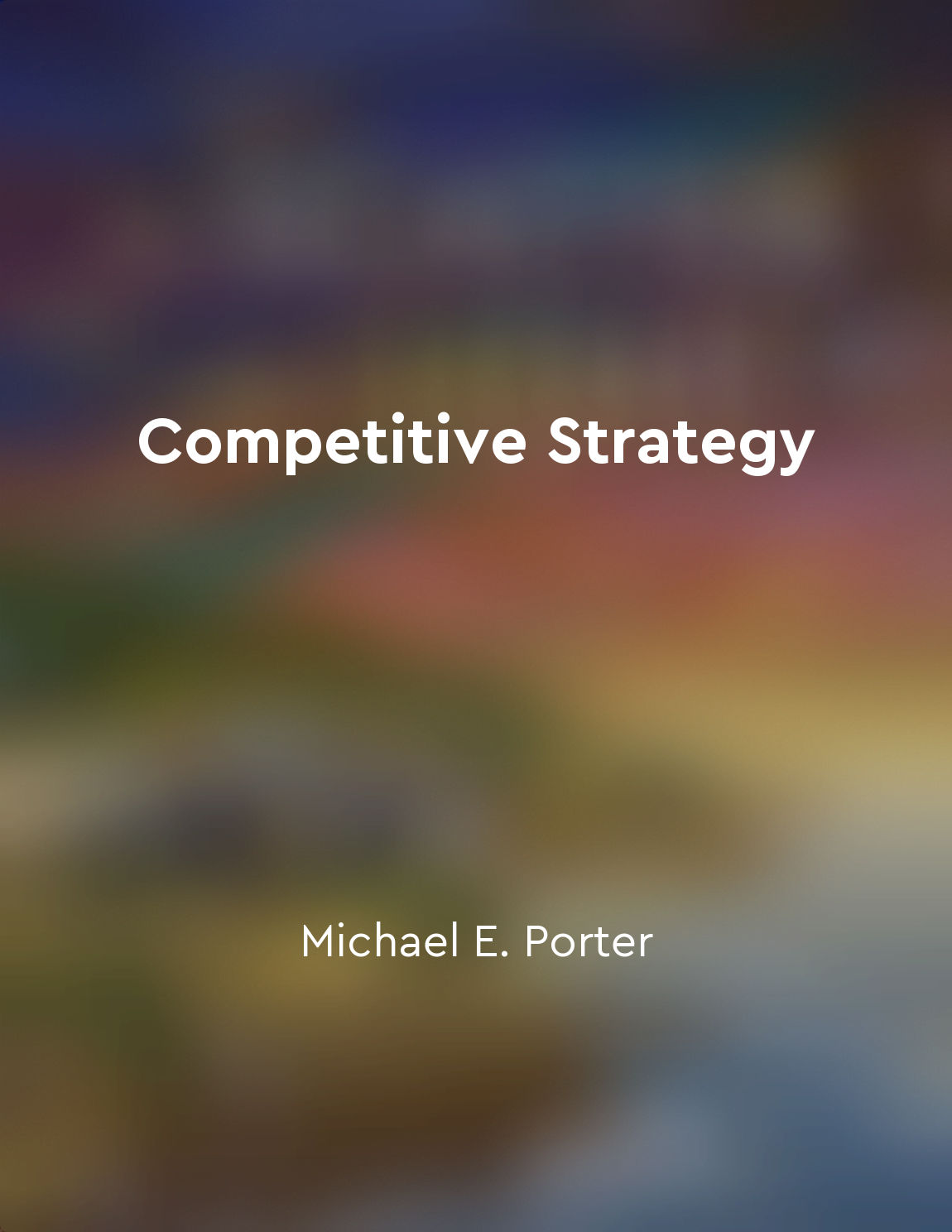Differentiation and cost leadership are the two main generic strategies from "summary" of Competitive Strategy by Michael E. Porter
In the realm of competitive strategy, two primary generic strategies reign supreme: differentiation and cost leadership. These strategies serve as the foundation for companies seeking to gain a competitive advantage in the market. Differentiation involves creating a unique and desirable product or service that sets a company apart from its competitors. By offering something distinctive, companies can command higher prices and build customer loyalty. This strategy often involves innovation, branding, and superior customer service to create a perceived value that customers are willing to pay for. On the other hand, cost leadership focuses on becoming the low-cost producer in the industry. By minimizing costs through efficient operations, economies of scale, and tight cost control, companies can offer products or services at lower prices than their competitors. This strategy allows companies to attract price-sensitive customers and potentially gain market share. While these two strategies may seem contradictory, they can be complementary in certain situations. For example, companies can differentiate their products in ways that also reduce costs, such as through process innovation or supply chain optimization. Conversely, cost leadership strategies can be enhanced by adding value through differentiation in key areas. It is essential for companies to carefully evaluate their resources, capabilities, and market dynamics when choosing between differentiation and cost leadership. Each strategy has its own set of risks and rewards, and not every company is equipped to successfully implement both simultaneously. By understanding the nuances of these generic strategies and aligning them with their unique strengths, companies can position themselves for sustained success in the competitive marketplace.Similar Posts
Customer satisfaction is essential for building brand loyalty
Customer satisfaction is the key to building brand loyalty. When customers are satisfied with a product or service, they are mo...

Foster a sense of ownership and pride in work
To truly empower your team members and unleash their full potential, it is crucial to instill in them a deep sense of ownership...
Avoid investing in businesses you do not understand
One of the most important principles to keep in mind when investing is to stick to what you know. This means avoiding businesse...

The free market rewards hard work and innovation
In a free market economy, individuals are motivated to work hard and innovate because they know that their efforts will be rewa...

Adapt to changing market trends
In the fast-paced world of business, staying ahead of the curve is essential for success. One key aspect of this is the ability...
People respond to changes in incentives
Incentives play a crucial role in shaping human behavior. When the cost of doing something decreases, people are more likely to...
Positioning is not just about what you say, but also about what you do
Positioning is not just about what you say, but also about what you do. Your actions as a company speak louder than your words ...
Stay focused on your longterm vision despite short-term challenges
When you first start a business, everything seems uncertain. It's easy to get caught up in the day-to-day challenges and lose s...
Adapting to changing times and markets
The Tata group has always been known for its ability to adapt to changing times and markets. From its inception, the founders o...
Adjust expenses to maximize profit
To maximize profit, you must adjust your expenses accordingly. This means cutting back on unnecessary costs and finding ways to...

